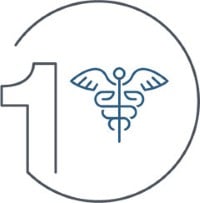
The Denominational Health Plan
Since its inception, The Denominational Health Plan (DHP) has offered valuable healthcare coverage to members, while The Episcopal Church Medical Trust (Medical Trust) delivered on its responsibilities to manage overall healthcare costs, work with The Episcopal Church to achieve parity in cost sharing between clergy and lay employees, and reduce healthcare premium disparity among dioceses.
The Medical Trust remains focused on addressing costs and balancing compassionate benefits with financial stewardship for the Church.
On this page: The Value of the DHP | How it Benefits the Church | DHP Taskforce | DHP Annual Reports
Providing compassionate, high-quality, reasonably priced healthcare.

Affordable Healthcare
- Medical Trust helps ensure that contributions are sufficient to fund health claims.
- Medical Trust closely watches industry trends to control costs.
- Medical Trust plans avoid commissions.
- More than 90% of every premium dollar is used to pay healthcare claims.
- Episcopal employers are relieved of many administrative burdens.

Comprehensive Coverage
- Medical, behavioral health, pharmacy, vision, dental, hearing
- Tailored packages, portable plans, broad access to healthcare providers
- Range of pricing options (platinum, gold, silver plans)
- Variety of rate tiers (single, family, etc.)

Robust Cost Coverage
- Average age in DHP is 52* vs. 42 national average
- Despite demographics, costs are lower than expected
- Medical Trust average rate increases: single-digit range
- Below-market increases amid benefit enhancements
- Continued reduction in healthcare cost disparity between highest-and lowest-priced dioceses
How the DHP Benefits the Church
The DHP leverages the collective purchasing power of its participants to offer comprehensive coverage at a lower cost than would be typical for other types of health insurance. As well, the lower expenses of healthy members help offset the higher expenses of those who are less healthy or more likely to need care.
Since the DHP’s inception, annual average cost increases have ranged from 4% to 6%, versus 7% to 9% for other large employers during the same period. The chart below shows this comparison since 2015, which results in a $270 million compounded impact.
The DHP Task Force
The 80th General Convention passed Resolution 2022-D034 requiring the creation of the Task Force to Advise the Church on the Denominational Health Plan (DHP Task Force) to review the structure and offerings of the DHP and report back to the 81st General Convention with a list of options to reduce healthcare costs across the Church, with a full explanation of the reasoning, costs, and benefits of each option.
CPG supported the creation of the DHP Task Force, which includes CPF Board Chair Kathryn McCormick and CPG Chief Operating Officer Frank Armstrong among its members. CPG is excited to collaborate with the Church as it further discusses and studies the issues and opportunities to consider for providing healthcare to clergy and lay employees.
DHP Legislation & Plan Model
Resolutions passed by the 76th and 77th General Conventions established and affirmed the Denominational Health Plan and the Plan Model.
Get more information on the resolutions and model.You will be redirected to a new tab for live remote support. Please confirm you're on a call with a Client Services team member to continue.